
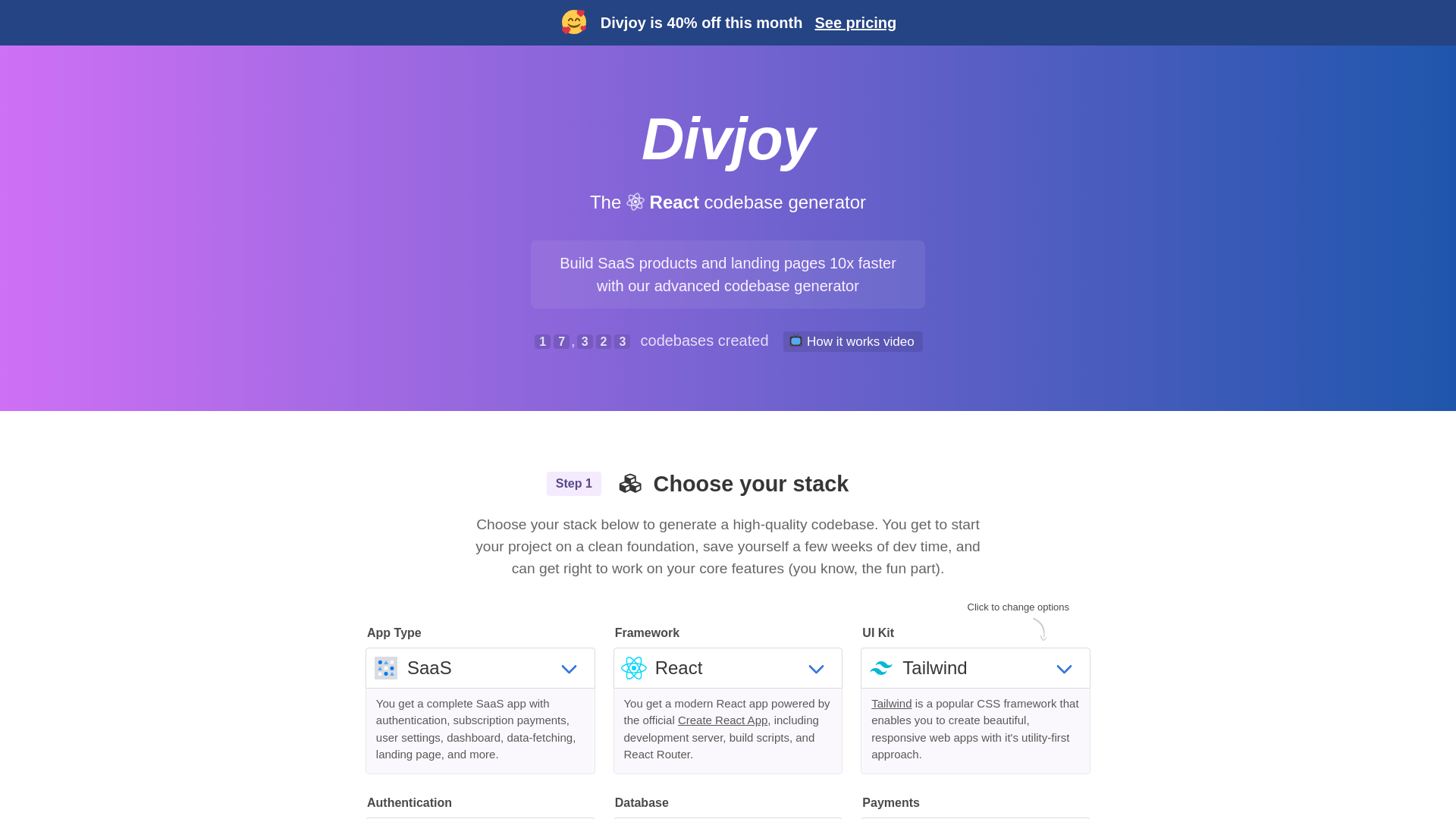
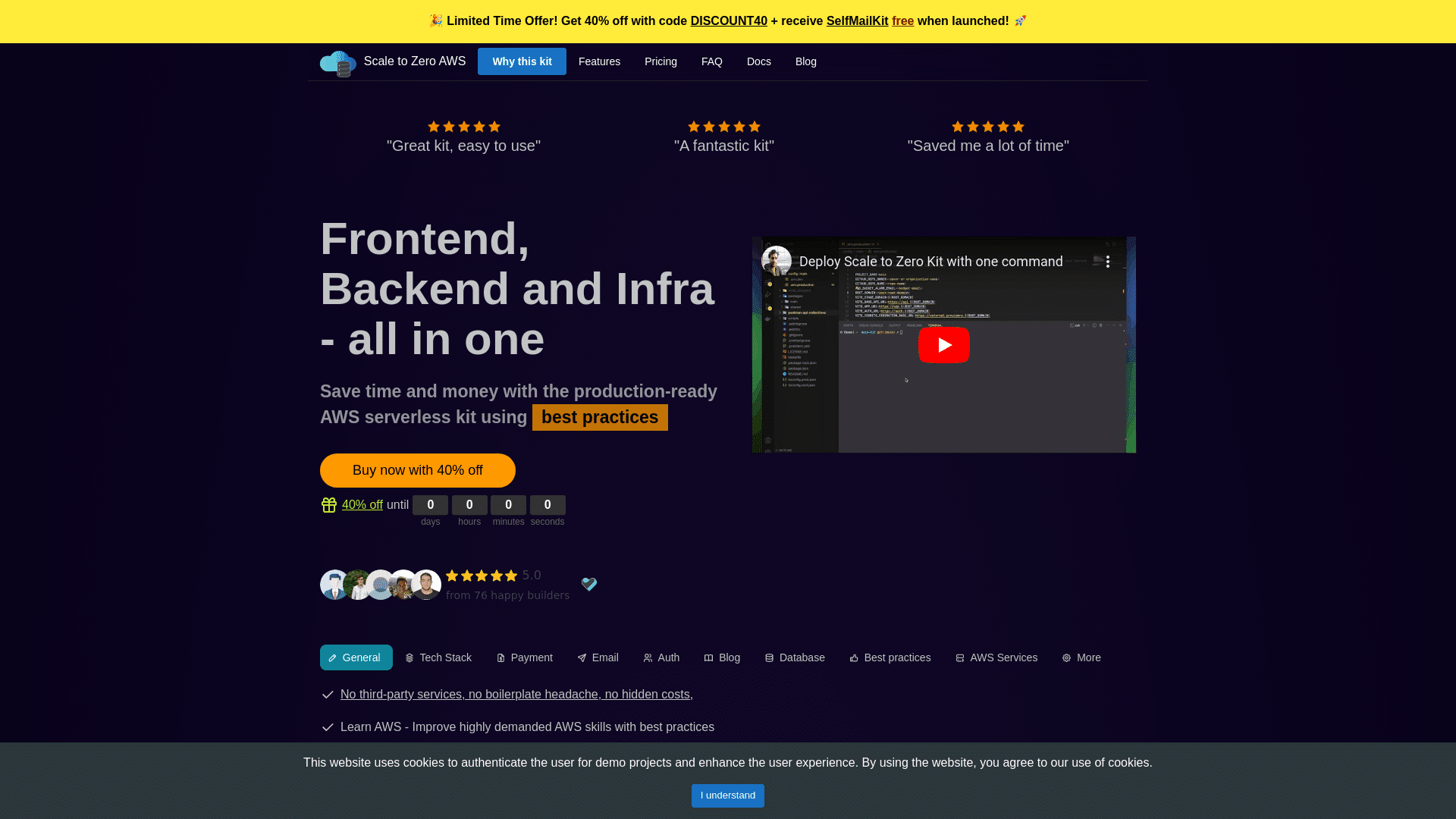
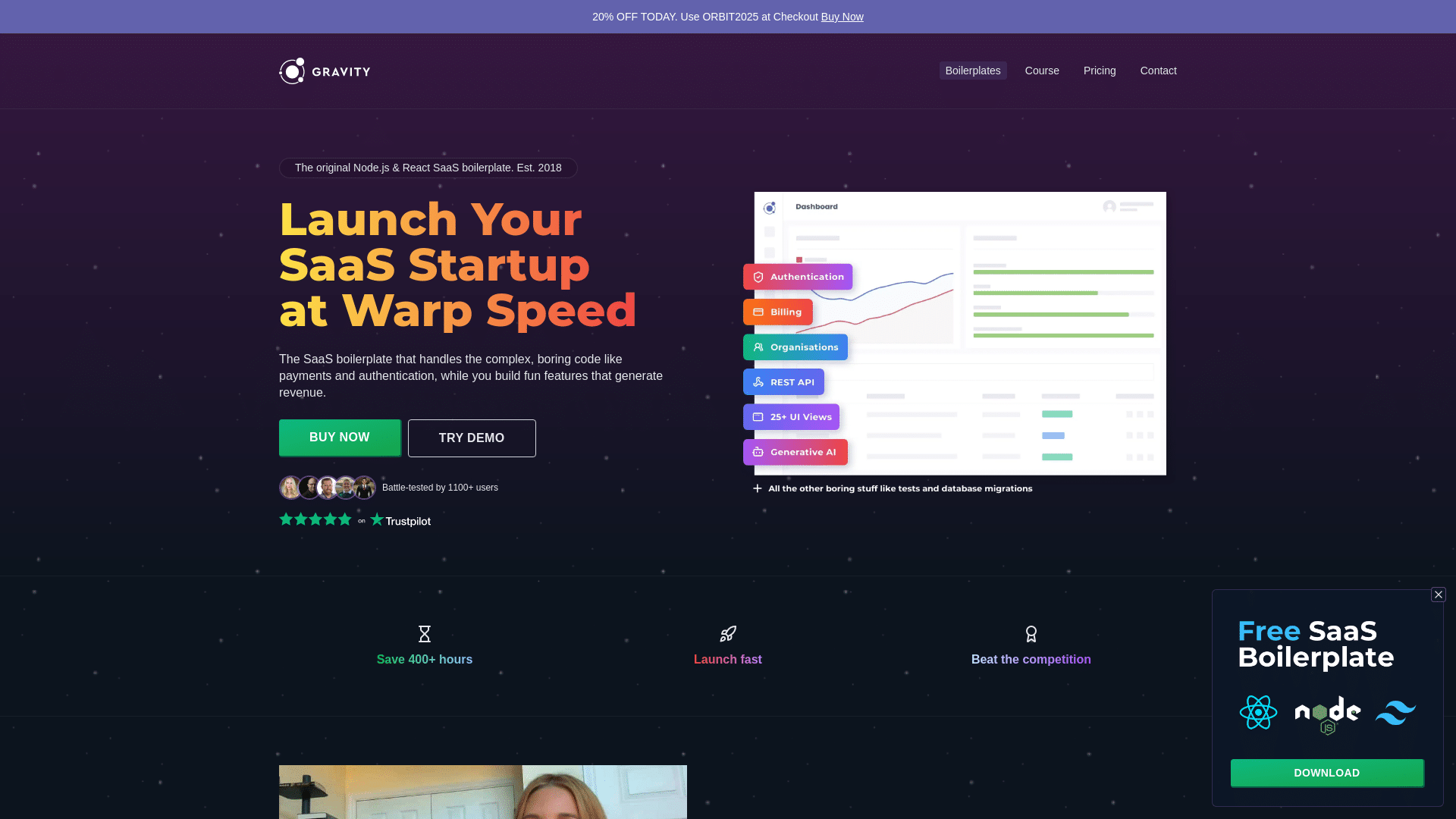
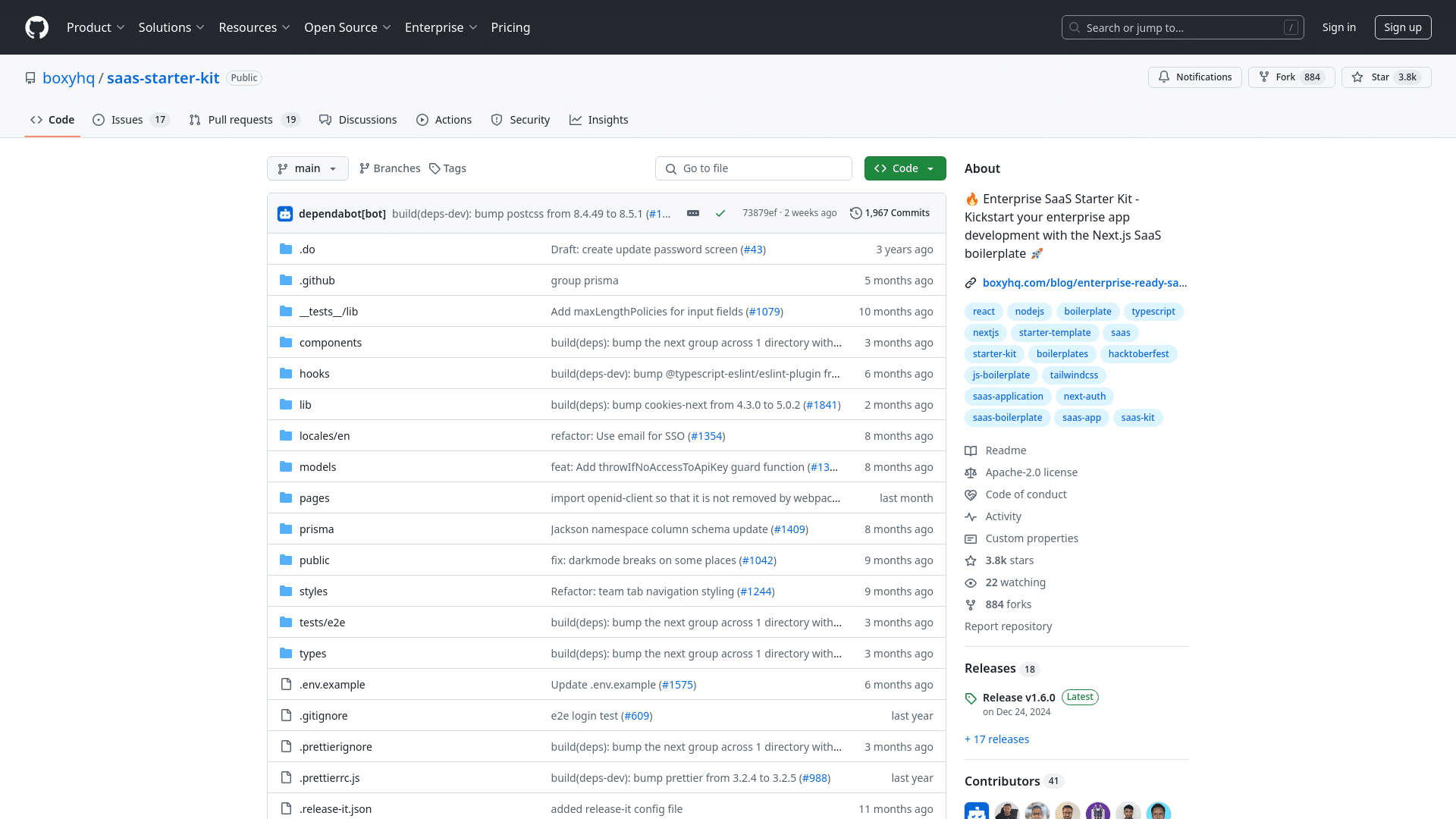
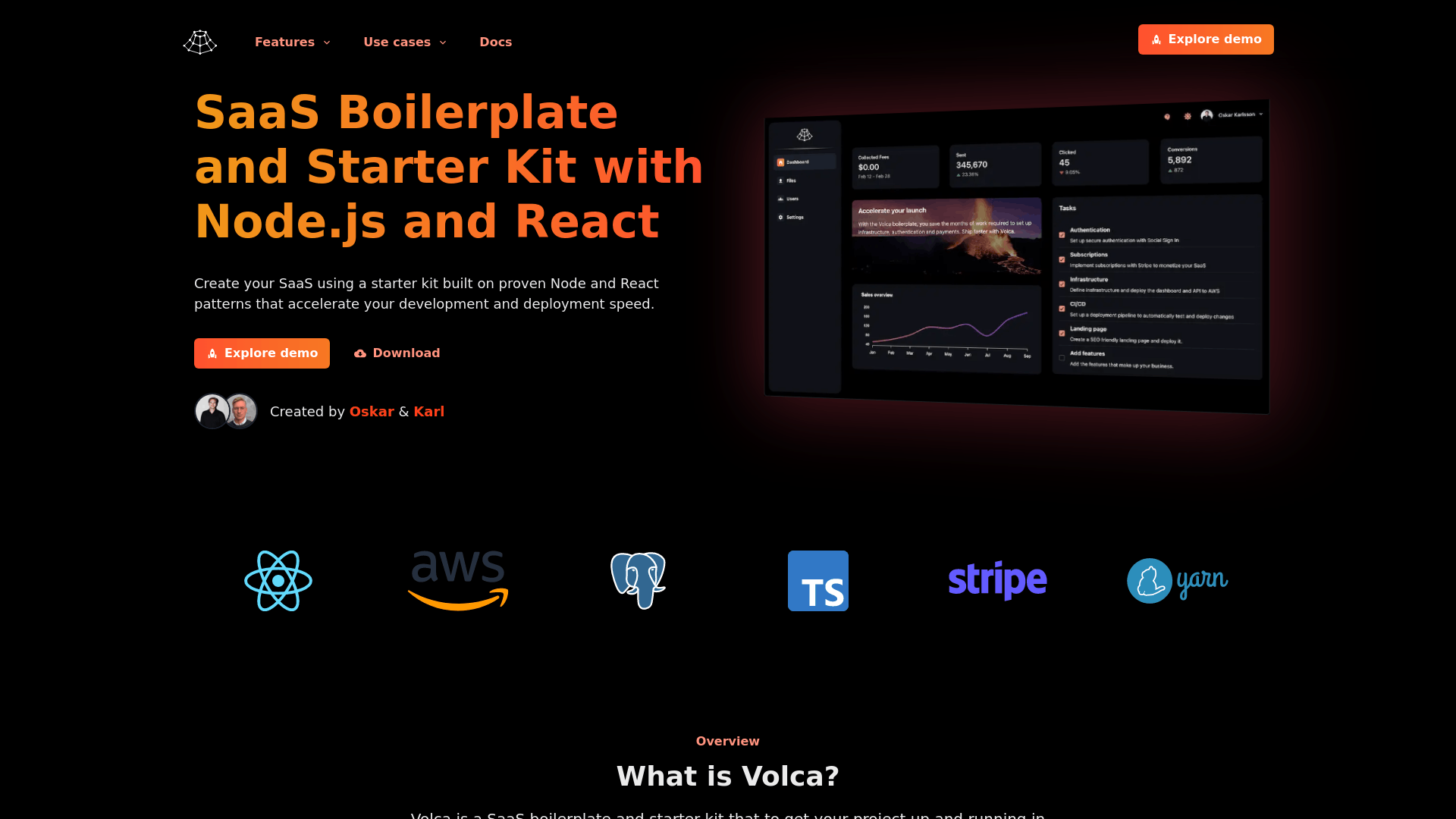
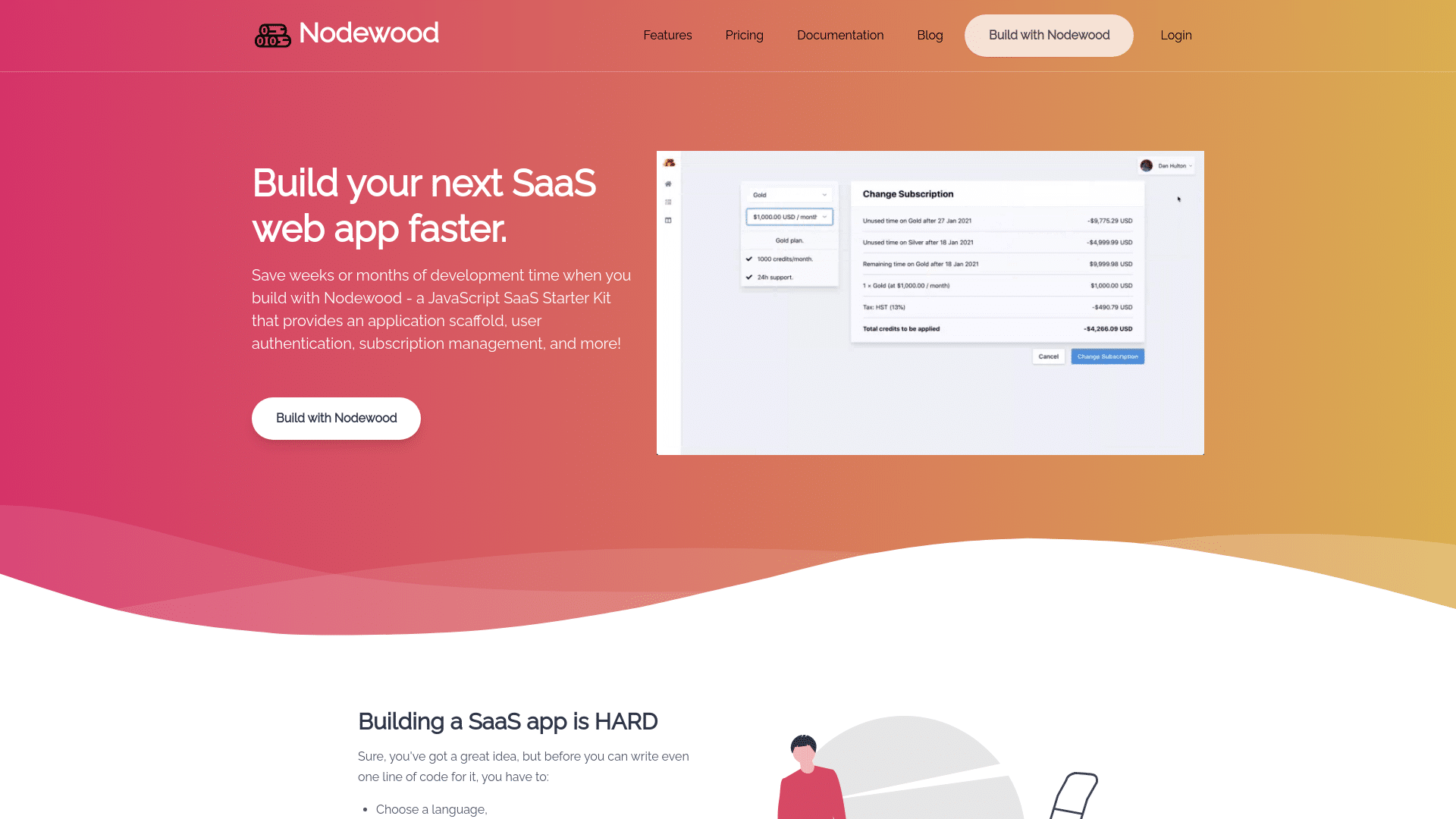
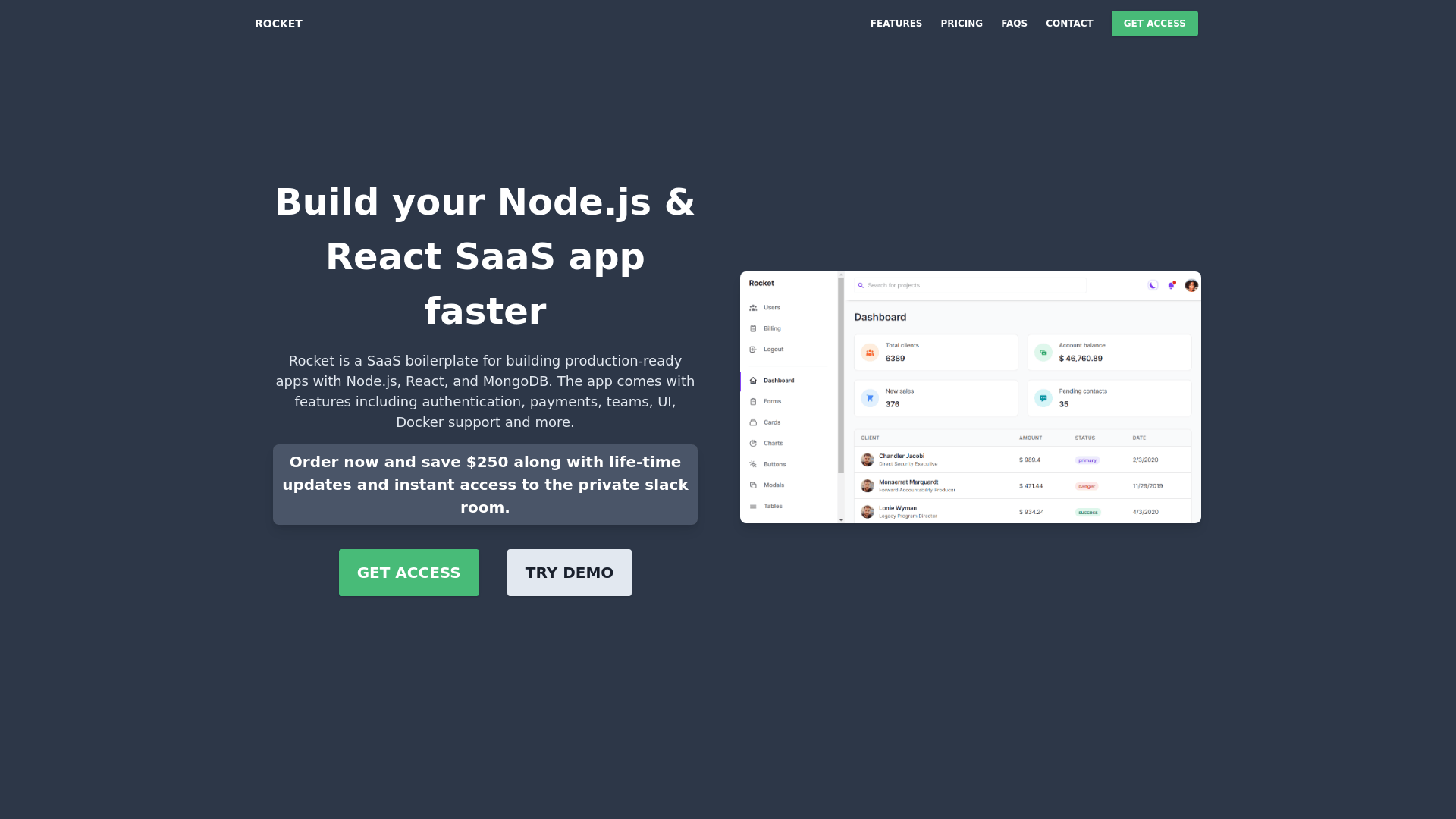

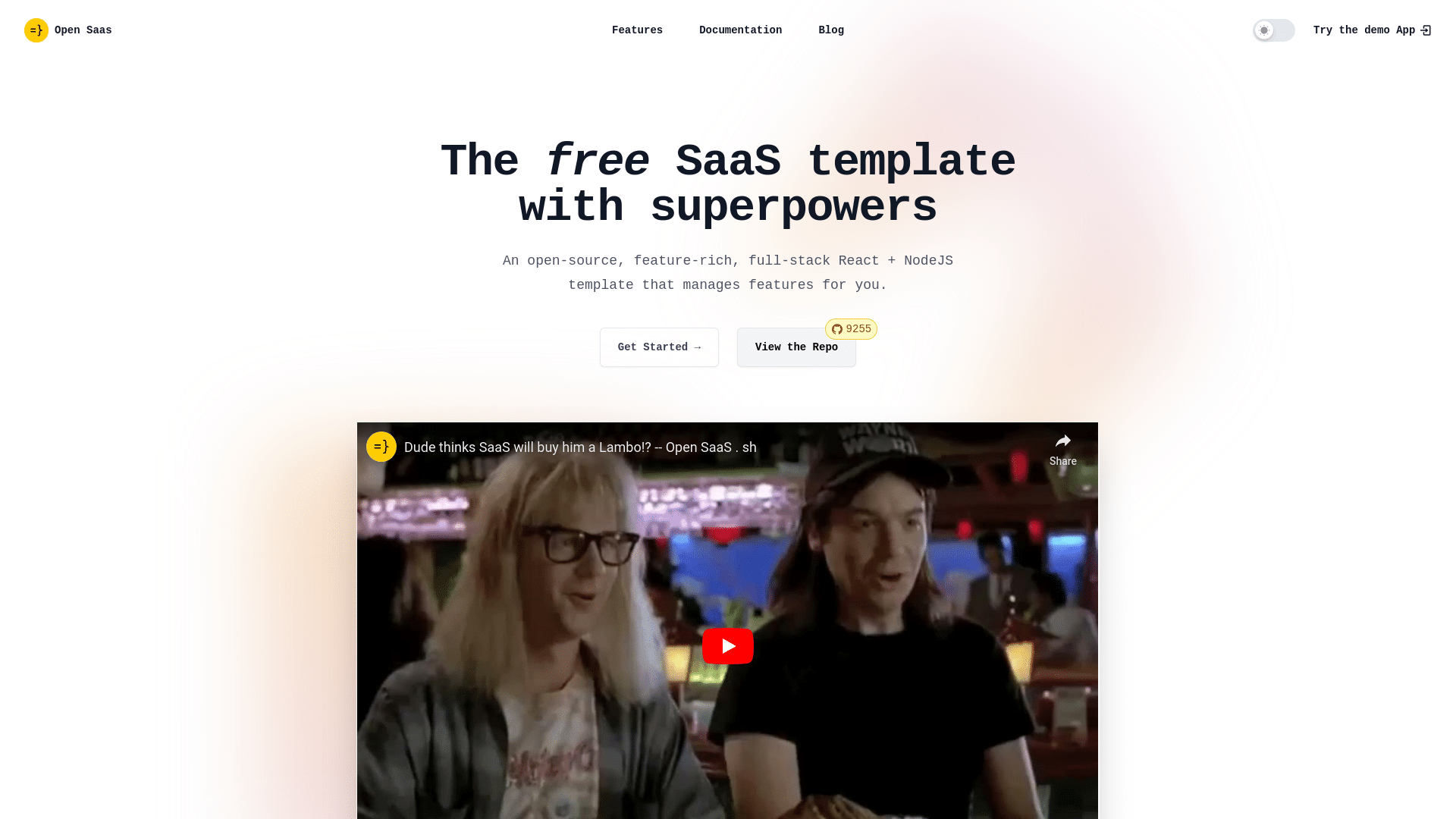
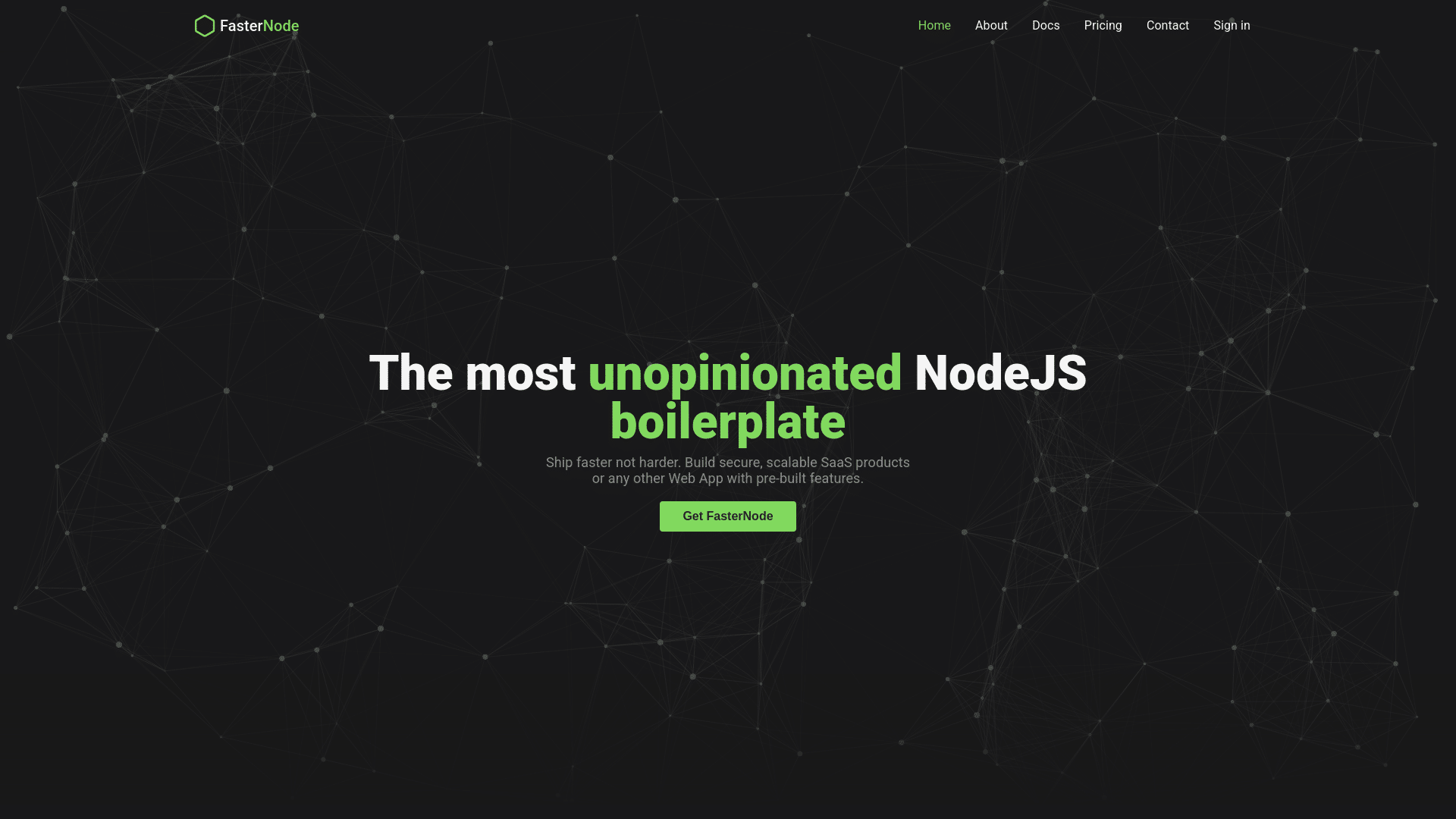
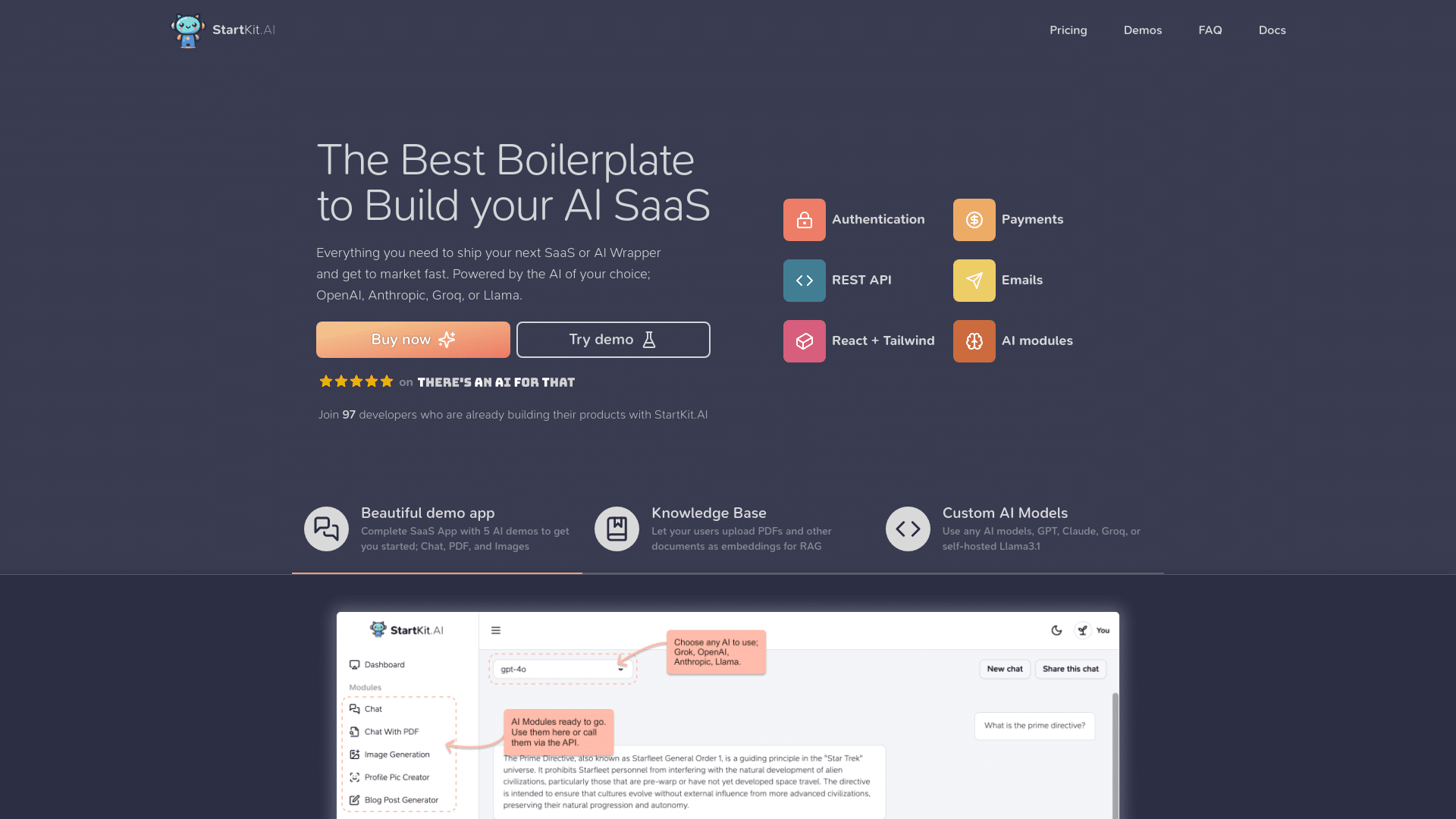
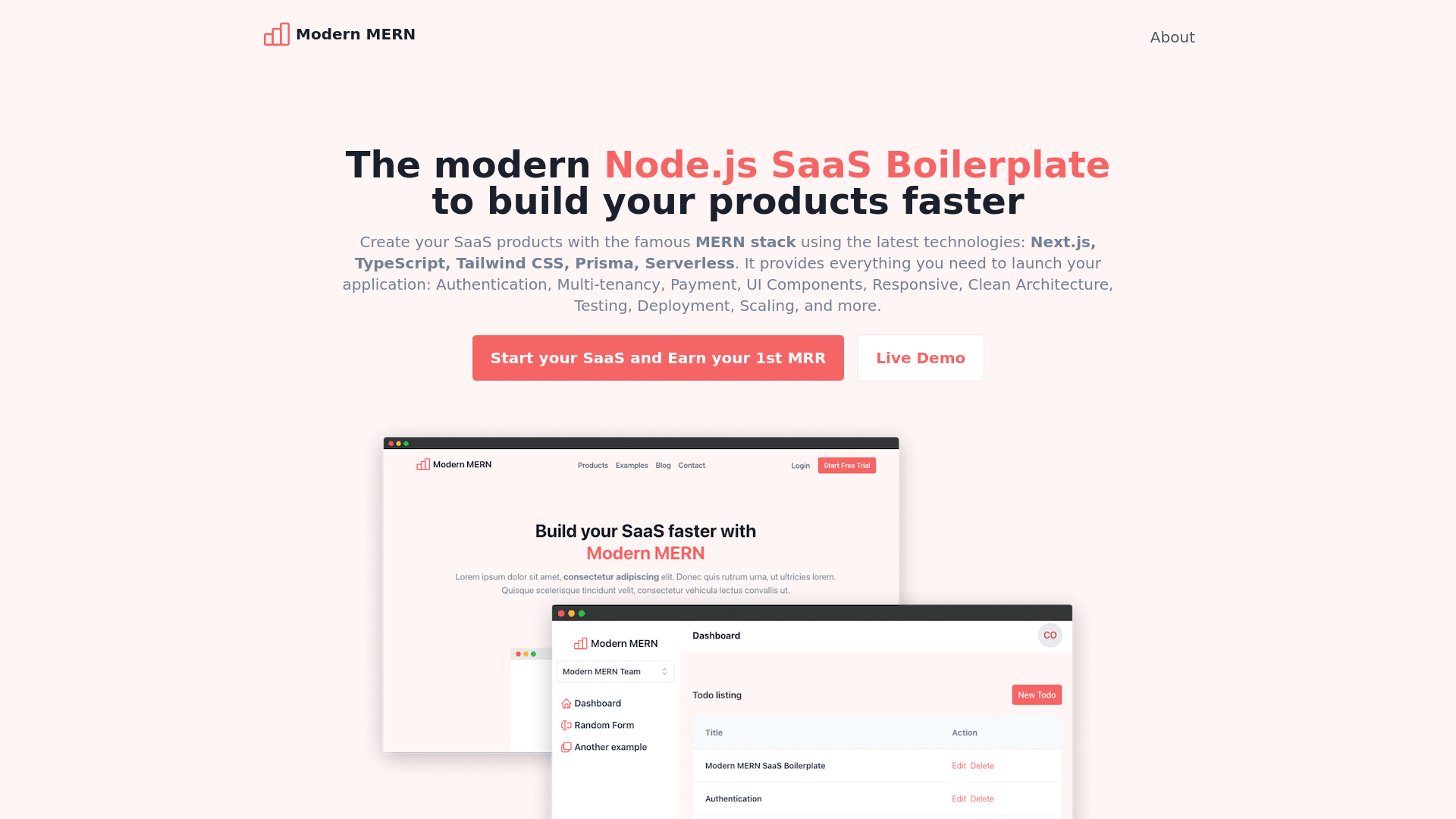
A Node.js SaaS (Software as a Service) boilerplate is a pre-configured template or starter kit that includes all the necessary files, modules, and functionality required to develop a SaaS application using Node.js. It is essentially a boilerplate code that developers can use as a starting point to build their own SaaS application. A Node.js SaaS boilerplate typically includes a set of pre-built features that are commonly required for building a SaaS application, such as user authentication, authorization, user roles and permissions, database integration, payment gateway integration, email integration, and more.
By using a Node.js SaaS boilerplate, developers can save a lot of time and effort that would otherwise be required to set up the project and build these features from scratch. They can also avoid common mistakes and security vulnerabilities that are associated with building these features on their own.
Here are some of the best Node.js SaaS boilerplates available.
<a in June 2009, has gained immense popularity over the years and currently has 97k stars on GitHub. Node.js has a vibrant developer community, and there are many libraries and frameworks available to make development easier and faster.
Node.js lets developers use JavaScript to write command line tools and for server-side scripting—running scripts server-side to produce dynamic web page content before the page is sent to the user's web browser. In other words, Node.js represents a "JavaScript everywhere" paradigm, unifying web application development around a single programming language, rather than different languages for server- and client-side scripts.
Essentially, Node.js is used to build fast, scalable network applications and can handle many concurrent connections with high throughput, which makes it well suited for web applications.